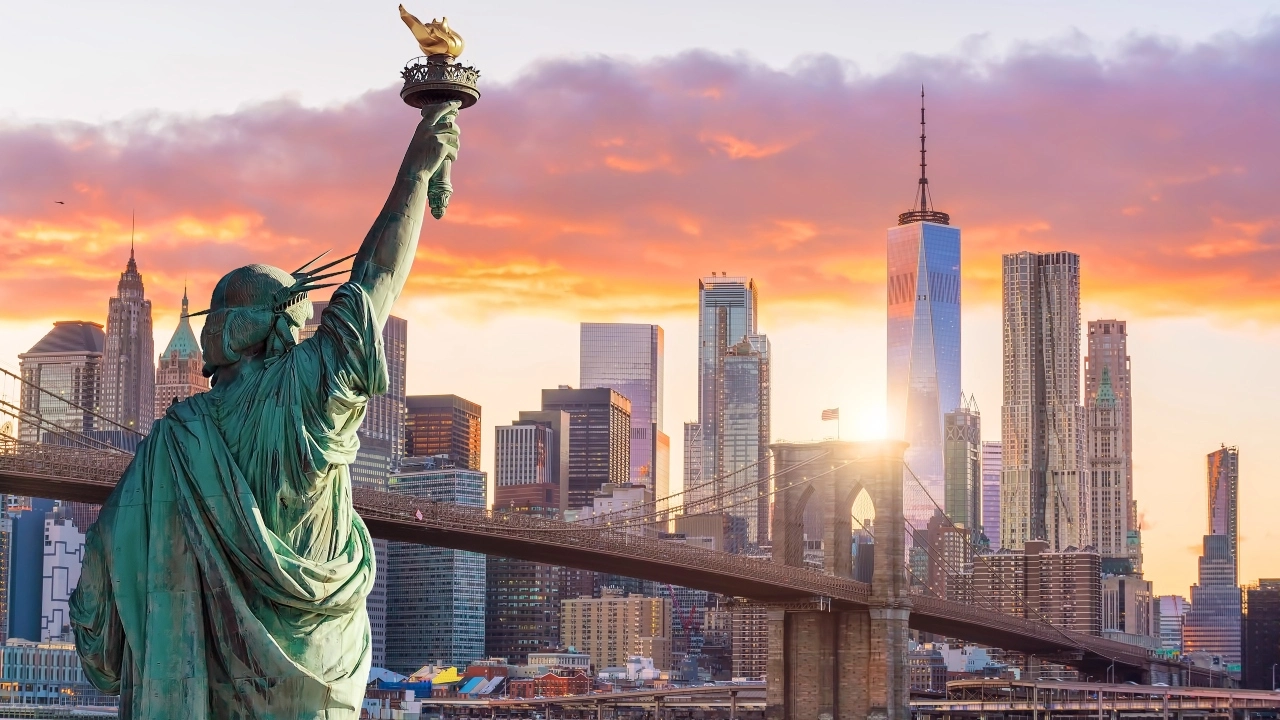New York’s beleaguered marijuana program suffered another blow when a federal appellate court on Tuesday found the state unconstitutionally discriminated against out-of-state residents during a recent license application round.
While unlikely to cause more major trouble by itself in New York, where regulators have already tweaked the application process, observers say the decision may discourage future marijuana social-equity programs nationwide.
In a ruling dated Aug. 12, a three-judge 2nd U.S. Circuit Court of Appeals panel ruled 2-1 that “(N)ew York’s prioritization of applicants with convictions under New York law is a protectionist measure that cannot stand.”
The case will now return to the lower court.
A spokesperson for the state Office of Cannabis Management, one of the defendants in the case, said the agency would have no comment.
Latest legal challenge to New York marijuana social equity
It’s the latest in a long string of challenges to New York’s marijuana laws brought by the same Beverly Hills-based attorney – who won a permit as part of a 2022 lawsuit only to later sell it rather than operate.
But it also follows a recent OCM decision to re-evaluate more than 100 permitted retail dispensaries that regulators now say are too close to schools.
That is a much bigger issue, legal observers told MJBizDaily.
However, this latest ruling “may prompt lawmakers and regulators in other states to reexamine the constitutionality of prioritizing individuals with state-level cannabis convictions for licensing purposes,” said Jeff Schultz, a New York-based attorney at Foley Hoag.
Florida is among the states with a robust medical marijuana markets but no social-equity program.
Ohio, which launched adult-use sales last year, also doesn’t have a marijuana social-equity program.
“I think New York potentially takes a hit on its aspirational goals of social equity,” New York-based attorney Dave Holland said.
Similar plaintiff using a similar argument
The appellate decision came in a lawsuit filed in December 2023 by a Beverley Hills attorney who’s also at the center of other challenges to cannabis social equity laws in New York and in other states.
In February 2024, a U.S. district court judge ruled against Jeffrey Jensen and his Variscite Four and Variscite Five companies, which applied for New York marijuana business permits in application windows that opened in November and December 2023.
It was Jensen whose separate, earlier lawsuit against the state OCM and Cannabis Control Board, challenging the state’s Conditional Adult Use Recreational Dispensary (CAURD) program, delayed permitting across the state and helped foil the launch of New York’s $1.5 billion legal market.
In Jensen’s 2023 suit – filed the same day the Variscite entities applied for permits – he argued that the U.S. Constitution’s dormant commerce clause prohibits states from setting rules that favor state residents over people residing out of state.
In the November and December application queues, New York marijuana regulators had given preference to applicants with a cannabis-related conviction in New York.
Attorneys for OCM argued that the dormant commerce clause does not apply to cannabis because the drug remains illegal.
A U.S. district judge agreed and dismissed the suit, but Jensen appealed.
New York unconstitutionally gave New Yorkers ‘a leg up’
In his majority opinion, U.S. Circuit Court of Appeals Judge Dennis Jacobs wrote that the lower court made an “error.”
“The dormant Commerce Clause prohibits state protectionism unless Congress clearly authorizes specific protectionist laws,” he wrote.
“Congress has given New York no clear permission to favor its residents over others whose businesses skirt the federal drug laws,” he added.
“But the Adult Use program gave certain applicants a leg up.”
Little is expected to change for now.
Before the ruling, New York regulators had abandoned its earlier plans to limit the permits awarded in the November and December queues and instead review thousands of applications.
That’s a process that could last until the next decade, regulators have said at recent public meetings.
And it’s created another problem: New York regulators have begun to worry that they’re permitting too many stores and are dooming some to failure.
Subscribe to the MJBiz Factbook
Exclusive industry data and analysis to help you make informed business decisions and avoid costly missteps. All the facts, none of the hype.
What you will get:
- Monthly and quarterly updates, with new data & insights
- Financial forecasts + capital investment trends
- State-by-state guide to regulations, taxes & market opportunities
- Annual survey of cannabis businesses
- Consumer insights
- And more!
Could put marijuana, social equity before U.S. Supreme Court
But there are wider implications.
The latest ruling “further escalates the tension we’ve already seen over the past few years among courts across the country” ruling on cannabis-related cases that invoke the dormant commerce clause, said Fatima Afia, an attorney at Rudick Law Group.
There are other Jensen-related cases pending in the 4th and 9th Circuits, Afia added.
If those courts issue contradicting opinions, “it is very likely that this issue will be decided by the U.S. Supreme Court,” she added.
“And with that kind of escalation could come some creative legal strategies to force open interstate commerce in cannabis.”
Chris Roberts can be reached at chris.roberts@mjbizdaily.com.
Medical Disclaimer:
The information provided in these blog posts is intended for general informational and educational purposes only. It is not a substitute for professional medical advice, diagnosis, or treatment. Always seek the advice of your physician or other qualified healthcare provider with any questions you may have regarding a medical condition. The use of any information provided in these blog posts is solely at your own risk. The authors and the website do not recommend or endorse any specific products, treatments, or procedures mentioned. Reliance on any information in these blog posts is solely at your own discretion.





